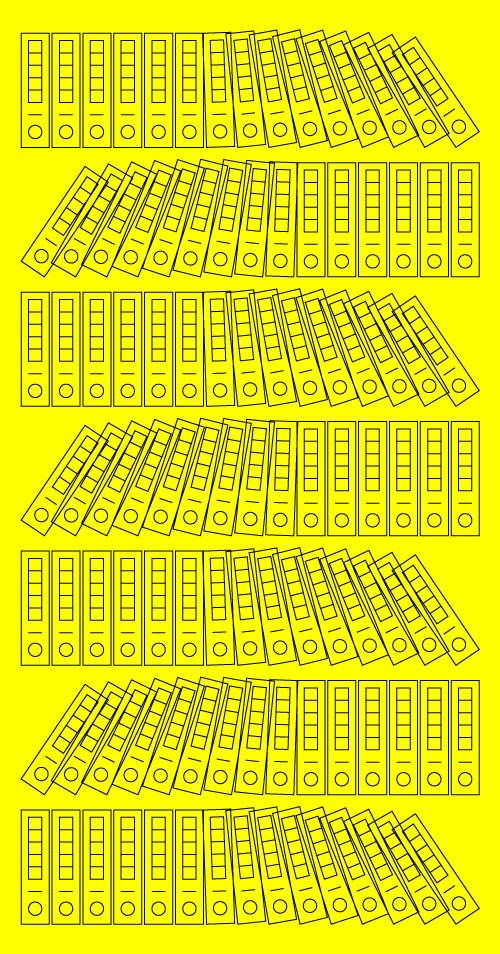‘Underdevelopment’ as an Arab* brand
Decades of colonial presence have left their mark on identity formation and narrative transmission in Arab-speaking countries. This hegemonic relationship has shaped ‘the colonized mind’ (cf. Fanon, Dabashi, Lumumba). Manifestations of the colonized mind shape today’s heritage production dynamics through ‘self-Orientalism’, a process that mimics the dynamics of traditional Orientalism but is planned, practiced and projected by the traditionally defined ‘other’ onto his own context (Dabashi, 2009). This process projects ‘underdevelopment’ as a unique selling proposition in the Arab region – specifically in creative industries – and is characterized by:
A Dismissive Attitude
A rejection of locality, deeming it poor, banal, barbaric and thus, ‘underdeveloped’.
A Passive Exchange
A minor interaction with cultural attributes using local discourse without necessarily adopting its ideologies. It is a discourse that emerges from colonial education advocating for cultural exchange on the basis of ‘otherness’.
A Glorified Exoticism of Self
A path that attempts to reclaim a local identity, however, that mostly addresses a western audience.
‘Underdevelopment’ becomes a brand with an audience in need of dissemination and mediation. It is also a main subject for ‘revolution-tourism’, a project adopted by European scholars and researchers who parachute themselves onto Arab countries backed by EU-grants. In contrast, other scholars advocate for decolonizing academia and a rejection of a victimized self-representation. Self-Orientalism sells. This extreme feasibility has been tested through several funding models from tourism in Marrakech to film, media and design in Beirut and Cairo. Heritage becomes a gimmick designed, funded and promoted by a network of cultural agents who are products of the colonized mind.
My paper argues that heritage production is a process in need of re-iteration. Its agents should rethink the colonial angle from which they perceive and represent distant communities. How can the local they identify as ‘underdeveloped’, resist, customize, collaborate, preserve and sustain itself, away from parachuted creatives and funded exoticised gazing? How can communities organize themselves to subvert the stigma and develop a counter-brand?
2019
Published on:
December 26, 2019
#Arab, #Branding, #Colonialism, #Identity, #Mediation, #Memory, #Stigma, #Underdevelopment
‘Underdevelopment’ as an Arab* brand
2019
Published on:
#Arab, #Branding, #Colonialism, #Identity, #Mediation, #Memory, #Stigma, #Underdevelopment
Decades of colonial presence have left their mark on identity formation and narrative transmission in Arab-speaking countries. This hegemonic relationship has shaped ‘the colonized mind’ (cf. Fanon, Dabashi, Lumumba). Manifestations of the colonized mind shape today’s heritage production dynamics through ‘self-Orientalism’, a process that mimics the dynamics of traditional Orientalism but is planned, practiced and projected by the traditionally defined ‘other’ onto his own context (Dabashi, 2009). This process projects ‘underdevelopment’ as a unique selling proposition in the Arab region – specifically in creative industries – and is characterized by:
A Dismissive Attitude
A rejection of locality, deeming it poor, banal, barbaric and thus, ‘underdeveloped’.
A Passive Exchange
A minor interaction with cultural attributes using local discourse without necessarily adopting its ideologies. It is a discourse that emerges from colonial education advocating for cultural exchange on the basis of ‘otherness’.
A Glorified Exoticism of Self
A path that attempts to reclaim a local identity, however, that mostly addresses a western audience.
‘Underdevelopment’ becomes a brand with an audience in need of dissemination and mediation. It is also a main subject for ‘revolution-tourism’, a project adopted by European scholars and researchers who parachute themselves onto Arab countries backed by EU-grants. In contrast, other scholars advocate for decolonizing academia and a rejection of a victimized self-representation. Self-Orientalism sells. This extreme feasibility has been tested through several funding models from tourism in Marrakech to film, media and design in Beirut and Cairo. Heritage becomes a gimmick designed, funded and promoted by a network of cultural agents who are products of the colonized mind.
My paper argues that heritage production is a process in need of re-iteration. Its agents should rethink the colonial angle from which they perceive and represent distant communities. How can the local they identify as ‘underdeveloped’, resist, customize, collaborate, preserve and sustain itself, away from parachuted creatives and funded exoticised gazing? How can communities organize themselves to subvert the stigma and develop a counter-brand?
